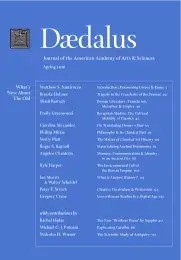Memory, Commemoration & Identity in an Ancient City: The Case of Aphrodisias
The ancient Greek city of Aphrodisias in Asia Minor presents abundant source material–inscriptions and images–for the study of memory and identity from the late second century BCE to the seventh century CE. These sources permit the study of overlapping civic, social, and religious identities, the expression of changing identities through name changes, the significance of memories of war and foundation legends for the transmission of collective and cultural memory, the agency of elite benefactors and intellectuals, the role played by inscriptions in the construction and transmission of memory, and the adaptation of identity to changing contexts, including emerging contacts with Rome, competition with other cities, an elevated position as provincial capital, and the spread of Christianity. In late antiquity–when the importance of religious conflicts increased–personal names, religious symbols, and acclamations became an important medium for the expression of the identity of competing religious groups.
New impulses in the study of Greek and Roman history come from various sources: the discovery of new and important documents in the forms of inscriptions and papyri; the dialogue with other historical disciplines and with the social sciences; and both new theoretical models and modern experiences and challenges. In the last six decades, new epigraphic finds have significantly changed our understanding of ancient religion. Papyri, such as the Qumran texts and the Judas evangelium, have revolutionized the study of early Christianity. Quantitative methods in the social sciences have contributed to the study of ancient demography, and the study of ancient democracy has profited from input from the political sciences, anthropology, and sociology. Performance theories and theories on rituals have inspired new research of the political culture of Greece and Rome. The feminist movement gave new directions to the study of gender and society; dialogues with the neurosciences, psychology, and modern history have generated vivid interest in the study of emotions and social memory in classical antiquity. . . .
